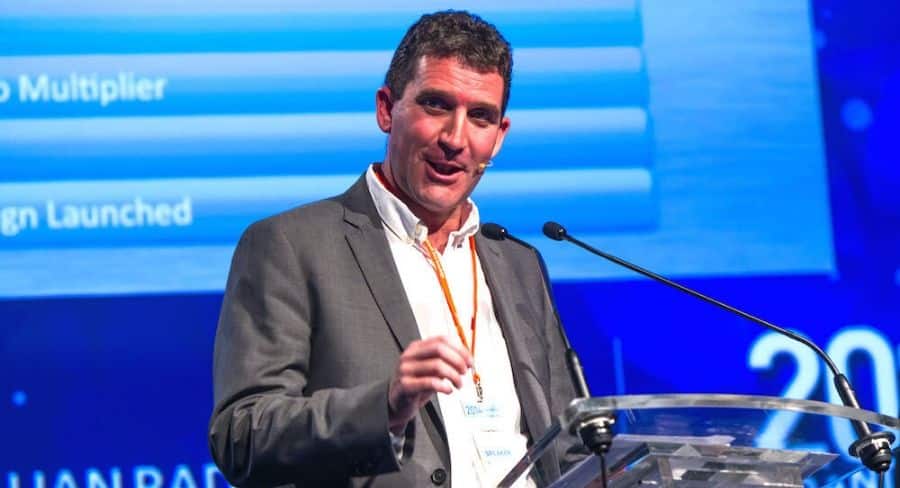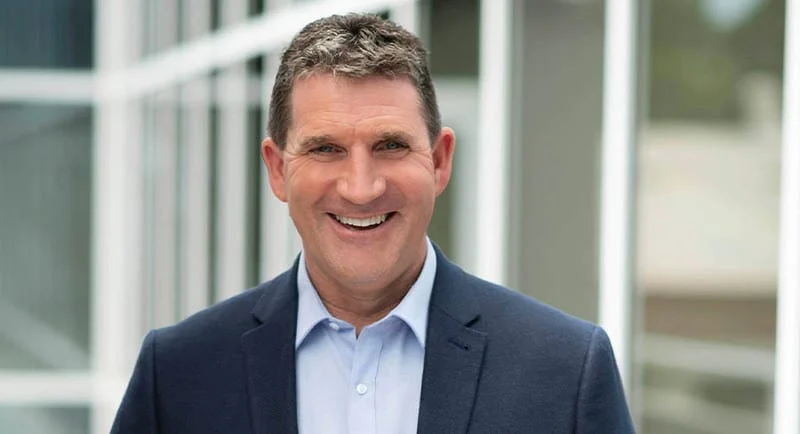“The top line isn’t where we want it to be, but the foundations of this business are still very, very strong.”
That’s how Australian Radio Network (ARN) CEO Ciaran Davis characterised the company’s HY25 results in an interview with Mediaweek.
Revenue pressure and digital growth
ARN reported a 2% decline in metro advertising revenue, with regional revenue also down 2%. Group revenue fell from $344.9 million in FY22 to $334.3 million in FY23, and net profit before tax dropped from $66 million to $45.2 million.
Offsetting that pressure, digital audio revenue grew 36% to $19.8 million, supported by a 27% rise in weekly podcast listening and monthly downloads reaching 28 million. iHeart remained the country’s leading podcast publisher, with a combined audience of nearly 7 million.
Davis pointed to these digital gains, along with improvements in working capital, debt reduction, dividends, and cash conversion, as evidence of the company’s resilience. He also highlighted the impact of ARN’s transformation program, which removed 240 roles over the past year.
“With that comes uncertainty and potentially a lack of focus,” Davis said. “All that work is done now, the new team is settled in, the new people have arrived, and we’re expecting share gain in the second half,” he told Mediaweek.

Audience performance: modest gains but still foundational
Despite the softer revenue line, ARN continues to point to audience traction as a stabilising force, albeit with incremental gains so far. In Sydney, The Kyle & Jackie O Show remains a powerhouse: the show continues to hold the #1 FM breakfast slot, reaching a 12.5% share, up from 12.3%, and adding about 21,000 cumulative listeners.
In Melbourne, however, progress has been measured. The show’s share has hovered between 5.1% and 5.6%, still well behind the leaders. Recent figures saw it climb to 5.6% in the latest survey, a modest gain but far from a breakthrough.
But Davis is practical again repeating the company line that Kyle & Jackie O’s foray into Melbourne is “a long-term project.”
“We’re not expecting overnight success. We never said that was going to be the case. And we’re certainly pleased with the progress that we’re making, particularly in the key 25–54 demographic,” Davis said.
Davis also highlighted the retention of Jonesy and Amanda, and the decision to see the Melbourne-based Christian O’Connell networked into Sydney, as important talent in building national scale under the Gold brand across FM, DAB+ and iHeart.
“I get quite excited when I look at what Gold will offer from a national perspective, while being led by those three personalities,” he said.

Kyle and Jackie O
Looking ahead
Davis said ARN’s strategy is centred on three areas: creating content, distributing it across multiple platforms, and monetising it across broadcast and digital.
“We look at it as total audio,” he said. “The foundation of our business is still very strongly in radio, but people are consuming audio differently. They’re still listening to radio at peak times, but increasingly on digital formats, whether that’s live breakfast or drive radio, or through podcasts.”
The company’s transformation program has also reshaped the business. More than 240 roles were removed over the past year, a major transition for a company of ARN’s size.
“With that comes uncertainty and potentially a lack of focus,” Davis said. “All that work is done now, the new team is settled in, the new people have arrived, and we’re expecting share gain in the second half.”
He added that ARN has strengthened its commercial capability with more digital and data expertise, which he says will support the company’s long-term shift.
“We actually feel as though we’re positioned well for long-term sustainable growth in the back half of this year, but also into 2026, when most of the cost benefit of what we’ve done will come through,” Davis said.
Davis also underlined the importance of financial discipline in underpinning that growth: “We’ve improved our working capital, paid down debt, continued to pay dividends, and strengthened our cash conversion. The foundations of this business are incredibly strong, and despite how hard it’s been over the past six months, we believe we’re well positioned for sustainable growth into 2026.”
